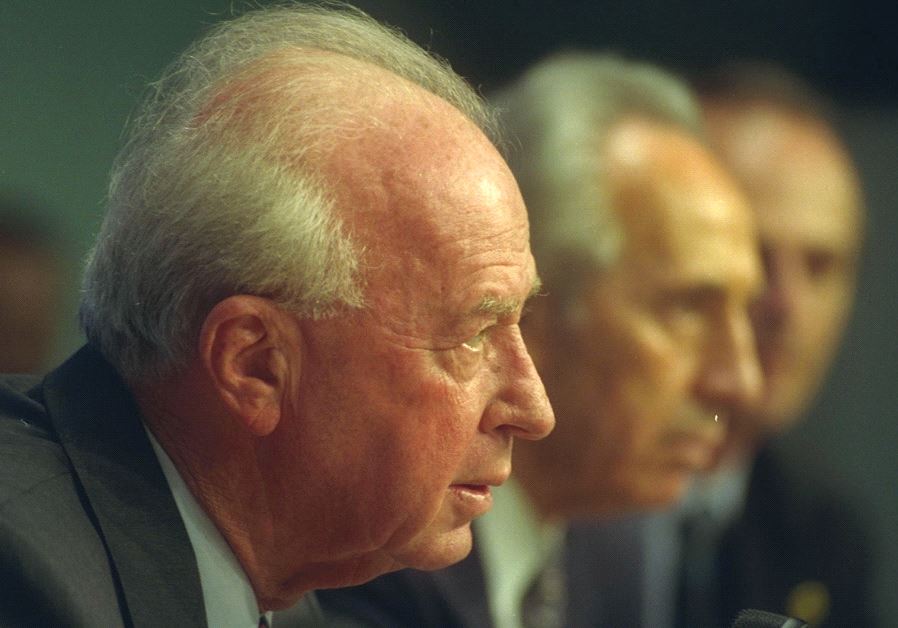The Olso Agreement was assassinated with Rabin
We will never know whether Rabin could have succeeded, but his assassination removed from the field a major player who could have made a difference.
 Yitzhak Rabin and Shimon Peres in 1994(photo credit: SA’AR YA’ACOV/GPO)
Yitzhak Rabin and Shimon Peres in 1994(photo credit: SA’AR YA’ACOV/GPO)